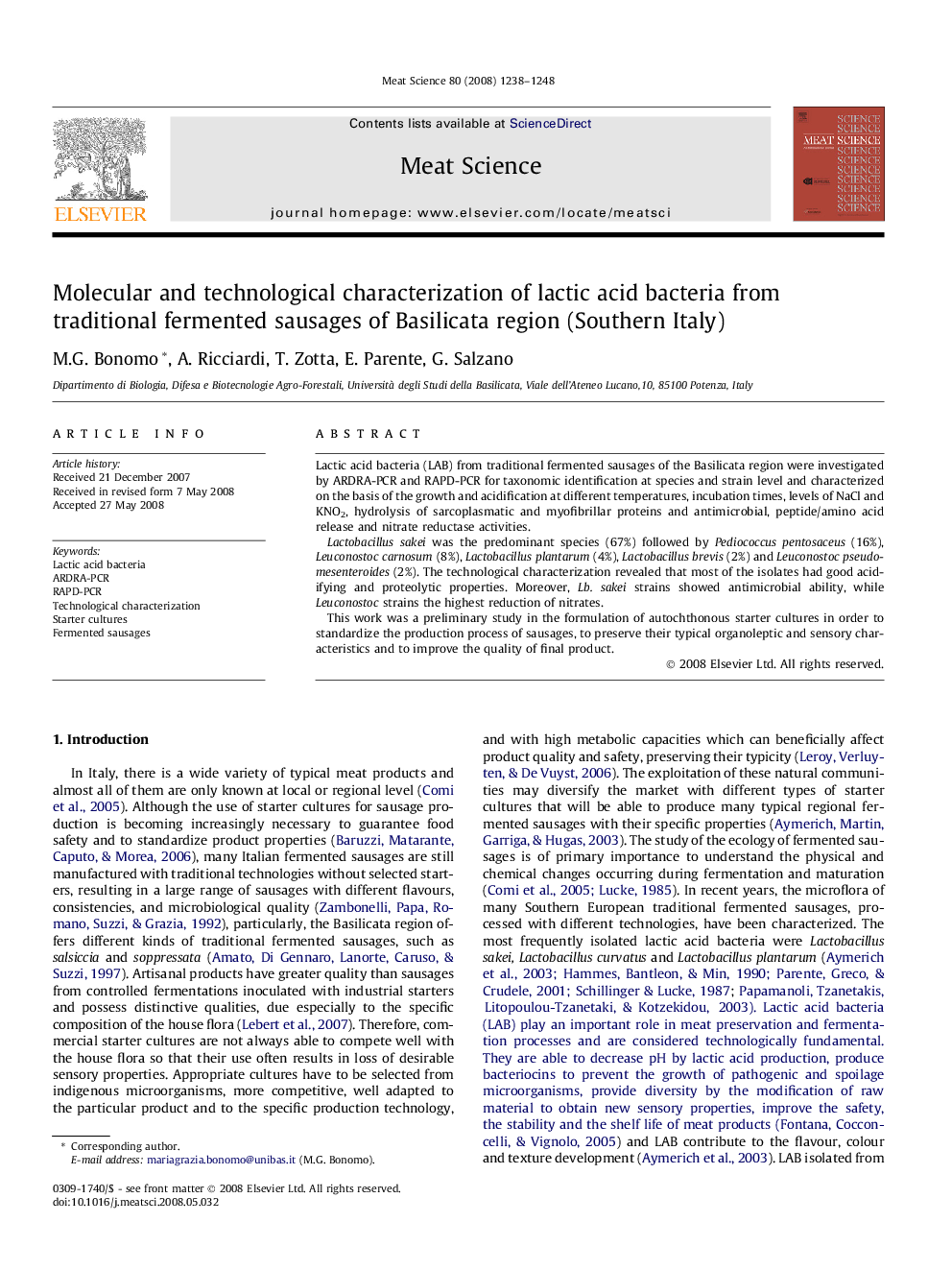| Article ID | Journal | Published Year | Pages | File Type |
|---|---|---|---|---|
| 2450704 | Meat Science | 2008 | 11 Pages |
Lactic acid bacteria (LAB) from traditional fermented sausages of the Basilicata region were investigated by ARDRA-PCR and RAPD-PCR for taxonomic identification at species and strain level and characterized on the basis of the growth and acidification at different temperatures, incubation times, levels of NaCl and KNO2, hydrolysis of sarcoplasmatic and myofibrillar proteins and antimicrobial, peptide/amino acid release and nitrate reductase activities.Lactobacillus sakei was the predominant species (67%) followed by Pediococcus pentosaceus (16%), Leuconostoc carnosum (8%), Lactobacillus plantarum (4%), Lactobacillus brevis (2%) and Leuconostoc pseudomesenteroides (2%). The technological characterization revealed that most of the isolates had good acidifying and proteolytic properties. Moreover, Lb. sakei strains showed antimicrobial ability, while Leuconostoc strains the highest reduction of nitrates.This work was a preliminary study in the formulation of autochthonous starter cultures in order to standardize the production process of sausages, to preserve their typical organoleptic and sensory characteristics and to improve the quality of final product.
